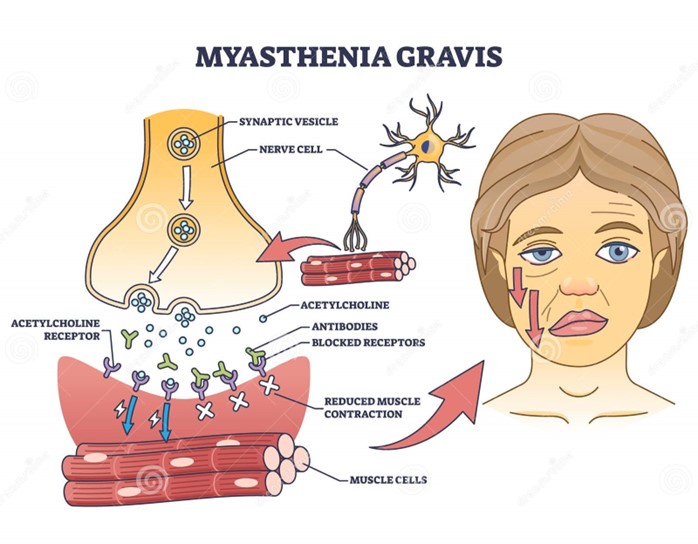The nurse is preparing for an initial home care visit for a client with diabetes. Which action by the nurse is appropriate? SELECT ALL THAT APPLY
Asking how they are managing at home
Going automatically into the client's bedroom
Arranging mutual future visits
Thanking the client for arranging a home visit
Sitting down and discussing with the client and family members
Correct Answer : A,C,E
Choice A reason: Asking how they are managing at home is an appropriate action by the nurse. It shows respect and interest in the client's situation and helps to assess their needs, challenges, and goals.
Choice B reason: Going automatically into the client's bedroom is not an appropriate action by the nurse. It violates the client's privacy and autonomy and may make them feel uncomfortable or threatened. The nurse should ask for permission before entering any room in the client's home.
Choice C reason: Arranging mutual future visits is an appropriate action by the nurse. It demonstrates collaboration and commitment and helps to establish a trusting relationship with the client. It also allows the nurse to plan and coordinate the care and follow-up.
Choice D reason: Thanking the client for arranging a home visit is not an appropriate action by the nurse. It implies that the home visit is a favor or a burden, rather than a professional service that the client is entitled to. It may also undermine the nurse's authority and credibility.
Choice E reason: Sitting down and discussing with the client and family members is an appropriate action by the nurse. It indicates that the nurse values the client's perspective and input, and recognizes the family as an important source of support and information. It also facilitates communication and education and promotes shared decision-making.
Nursing Test Bank
Naxlex Comprehensive Predictor Exams
Related Questions
Correct Answer is A
Explanation
Choice A reason: Planning medication doses to occur before meals is a good suggestion to improve the client's nutritional status. Myasthenia gravis is a neuromuscular disorder that causes weakness and fatigue of the voluntary muscles, especially those involved in chewing and swallowing. Taking anticholinesterase medications before meals can enhance muscle strength and coordination, and make it easier for the client to eat and avoid choking or aspiration.
Choice B reason: Restricting drinking fluids before and during meals is not a good suggestion to improve the client's nutritional status. Fluid intake is important for hydration and digestion, and should not be limited unless there is a medical reason, such as fluid overload or heart failure. Drinking fluids before and during meals can also help lubricate the food and prevent dryness or irritation of the mouth and throat.
Choice C reason: Increasing the amount of fat and carbohydrates in meals is not a good suggestion to improve the client's nutritional status. Fat and carbohydrates are sources of energy, but they can also increase the risk of obesity, diabetes, or cardiovascular disease if consumed excessively. A balanced diet that includes adequate protein, vitamins, minerals, and fiber is more beneficial for the client's health and well-being.
Choice D reason: Eating three large meals per day is not a good suggestion to improve the client's nutritional status. Eating large meals can be difficult and exhausting for the client with myasthenia gravis, as their muscle strength and endurance may decline over time. Eating smaller and more frequent meals can help maintain the energy level and prevent fatigue or hunger.

Correct Answer is B
Explanation
Choice A reason: Giving care with a focus on the aggregate's needs is not the best description of client-focused community-based nursing, as it implies that the nurse is providing care to a population or a group of individuals who share some common characteristics or risk factors. This is more aligned with the concept of population-focused community-based nursing, which aims to improve the health outcomes of a defined group of people.
Choice B reason: A philosophy that guides family-centered illness care is the best description of client-focused community-based nursing, as it reflects the core values and principles of this approach. Client-focused community-based nursing is a model of care that emphasizes the individual and family as the unit of care, rather than the disease or the health problem. It involves collaborating with the client and family to identify their needs, preferences, strengths, and resources, and providing holistic, culturally sensitive, and evidence-based care that promotes health, wellness, and quality of life.
Choice C reason: Providing care with a focus on the group's needs is not the best description of client-focused community-based nursing, as it suggests that the nurse is providing care to a collective or a social unit that shares some common goals or interests. This is more aligned with the concept of community-oriented community-based nursing, which aims to improve the health status of a specific community or subpopulation.
Choice D reason: A value system in which all clients receive optimal care is not the best description of client-focused community-based nursing, as it does not capture the essence or uniqueness of this approach. While it is true that client-focused community-based nursing strives to provide high-quality care to all clients, it also recognizes that each client and family has different needs, preferences, and expectations that require individualized and tailored interventions.
Whether you are a student looking to ace your exams or a practicing nurse seeking to enhance your expertise , our nursing education contents will empower you with the confidence and competence to make a difference in the lives of patients and become a respected leader in the healthcare field.
Visit Naxlex, invest in your future and unlock endless possibilities with our unparalleled nursing education contents today
Report Wrong Answer on the Current Question
Do you disagree with the answer? If yes, what is your expected answer? Explain.
Kindly be descriptive with the issue you are facing.
